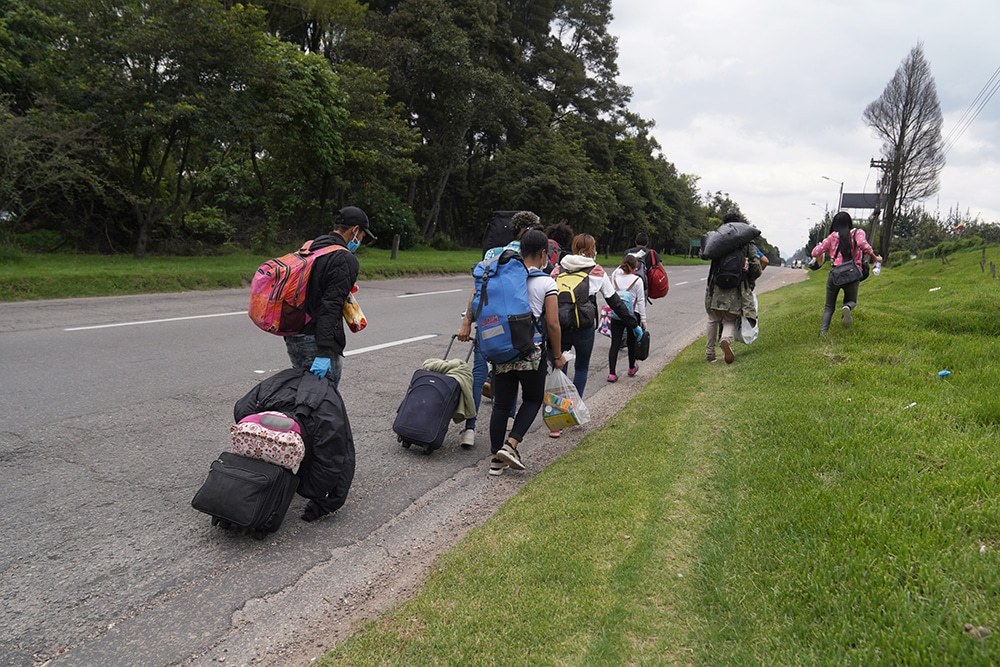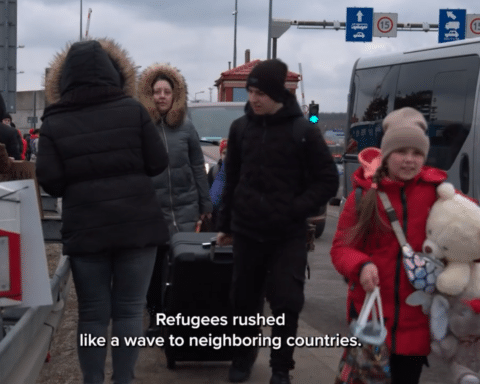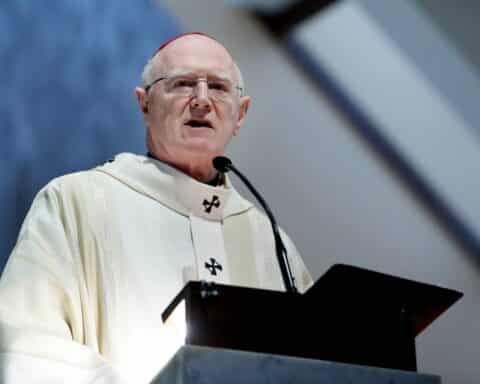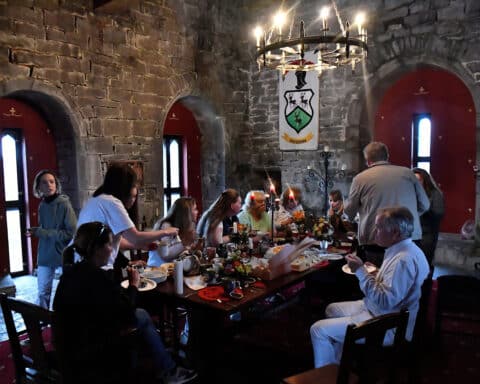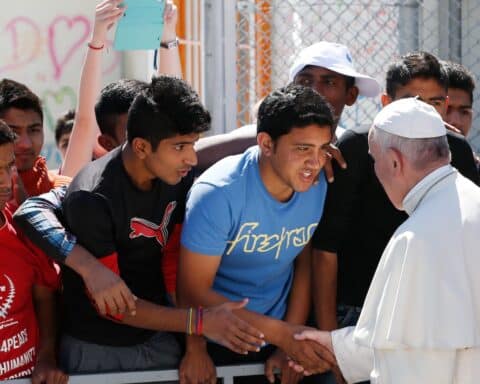This is a time of turmoil and anguish in our country. The past few months, we’ve endured a deadly pandemic and an economic downturn. Most recently, we watched in horror and anger as George Floyd died from police brutality. Nationwide demonstrations followed and, in some cities, more violence. Our hearts are straining.
But let me ask you to draw from the deep well of your faith and find compassion for one of the most vulnerable and sometimes forgotten people in the world: refugees. Now more than ever, they need our help.
Refugees are running for their lives. They are driven from their homes and communities by war and persecution. These are families from Syria, Afghanistan, South Sudan and many other countries. Refugees often flee with nothing more than the clothes on their backs, walk for days, cross rivers, deserts, oceans. They go hungry. They are frightened. Often, they are thwarted from resettling elsewhere.
There are more than 70 million people around the world forcibly displaced from their homes — the highest number since World War II. About 26 million of them officially are recognized as refugees.
Now, refugees face a new plight: COVID-19. They live in settlement camps or find rooms in squalid, crowded apartments. They sometimes have limited access to clean water and soap, which makes it hard to wash hands and stay safe from the disease. What’s more, most refugees have little to no social safety net, and their access to emergency services is often limited and sporadic. Any disruption in their lives can have significant consequences on their health. Coronavirus, therefore, can devastate areas where refugees live.
The pandemic also is having severe economic and other secondary impacts on developing countries where many refugees live. For instance, lockdowns have restricted access to food. The United Nations estimates worldwide emergency food insecurity and hunger could almost double this year as a result of the pandemic unless swift actions are taken.
As we celebrate World Refugee Day on June 20, I urge my fellow Catholics and others of goodwill to come together during this difficult time to support refugees, who are some of the most vulnerable among us. One way to help is to join Catholic Relief Services in its Lead the Way on Migration campaign, which offers opportunities for individuals and faith communities to pray, learn about and take action on global injustices. Right now, you can join the thousands of Catholics who are donating and advocating to their U.S. members of Congress in support of refugees and others vulnerable to the COVID-19 pandemic.
CRS, the international humanitarian arm of the U.S. Conference of Catholic Bishops, has assisted refugees since World War II, and now works on five continents serving the most vulnerable. The coronavirus crisis offers unique challenges. But CRS is innovating. For instance, at the Rohingya refugee settlement in Bangladesh, health care facilities were stretched to the limit. CRS and its local partner, Caritas, scaled up awareness sessions and emergency preparations all while continuing normal food, cash, water, sanitation and other services.
CRS and Caritas also have been working together to assist the millions fleeing Venezuela, as well as those who remain. CRS is working with Caritas Brazil, Ecuador and Colombia to help refugees stay safe in COVID-19 hotspots.
I speak about this issue not only as a man of faith, but as someone who experienced life as a refugee. In 1961, following the Bay of Pigs, I traveled alone as a teenager from my home in Cuba to Miami. My parents wanted what all mothers and fathers want for their children: a safe place to grow up. I was one of 14,000 youth who made the trip. Upon arrival at the Miami airport, I was greeted by a friendly person carrying a sign containing my name. I was welcomed. And then I was given shelter, a meal and a chance to integrate into American society. This effort was a joint effort by the Catholic Church and the government.
As a country, we cannot wait to act to prevent the spread of the coronavirus in refugee settlements around the world. We must heed the Holy Father’s warning not to narrow our hearts, even when they are full of anguish.
Christ was a person in need. He said: “I was a stranger and you welcomed me. I was hungry and you gave me food.” Christ is the one who is suffering in the refugee story. I cannot be indifferent.
Felipe J. Estévez is the Bishop of the Diocese of St. Augustine, Florida, and a member of the board of directors of Catholic Relief Services.

